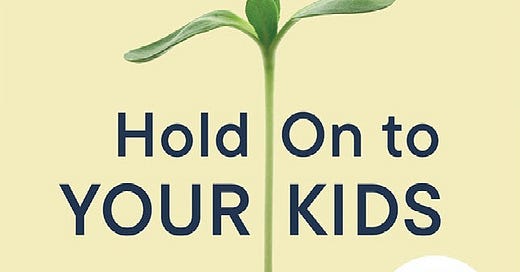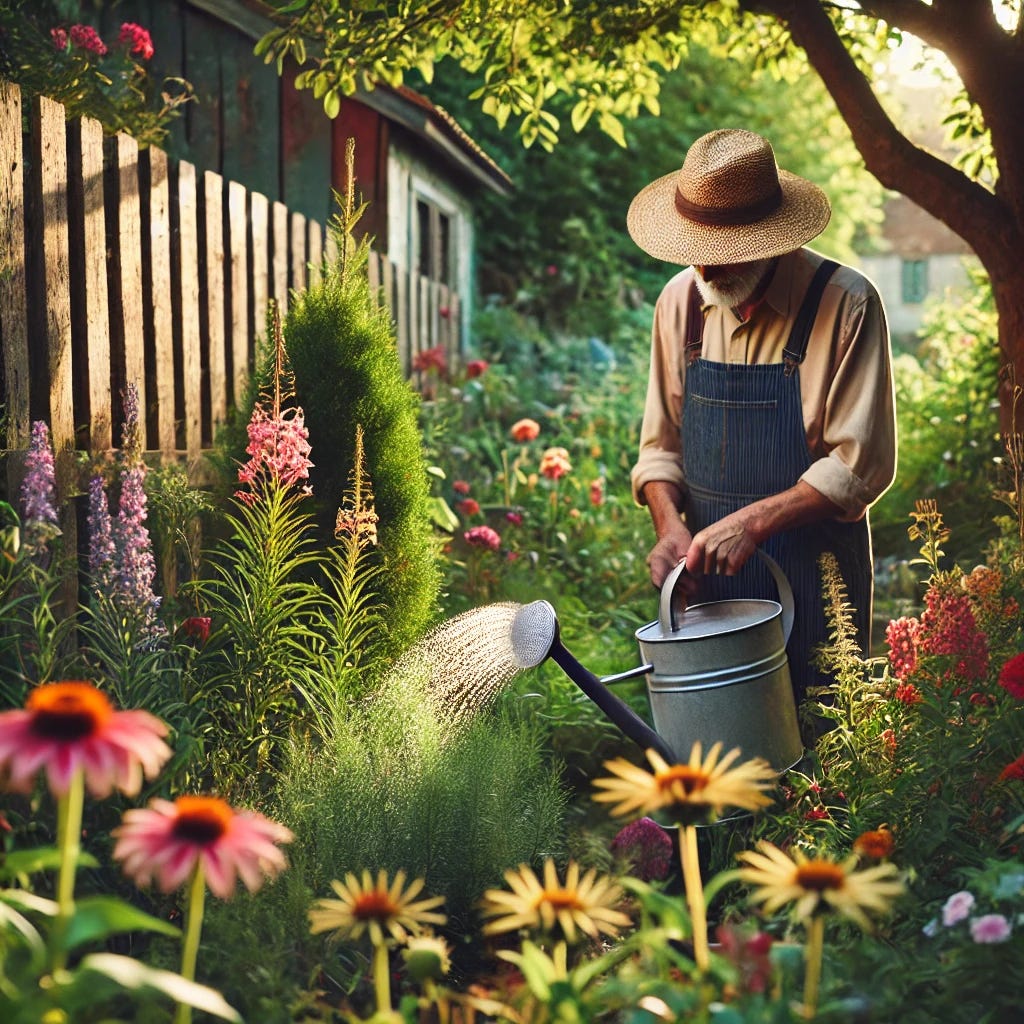A Conversation with Gordon Neufeld about 'Kids These Days'
'Introducing our experts' series. Part 1: Hold on to your kids.
In researching and writing our forthcoming book about youth mental health, Kids These Days, Will and I decided we needed to talk to the experts. A funny thing happened while doing this. A few of our experts told us clearly “To not trust the experts!” What they meant was quickly illuminated by what they shared. In short, parts of modern Western society has adopted interventions and ideologies that interfere with natural child and youth development, and often not in alignment with the research or long-standing effective practices.
One of the first people interviewed for our book was Dr. Gordon Neufeld, a renowned psychologist and parent educator. Gordon and Gabor Maté wrote a highly influential book called Hold on To Your Kids. We strongly endorse this book for all parents and those who work with kids. As a therapist and theorist, Gordon has years of reading the literature, training parents, and summarizing what works in youth development and parenting. He is comfortable leaning on the evidence and his decades of experience. While Gordon’s wisdom and stories are shared in more detail in our book, I wanted to share a few gems of his wisdom here {quotes are from the interview}.
“We all are meant to be embedded in relationships, to be able to realize our potential. The essence of the developmental approach is very, very simple. It's that potential unfolds spontaneously…and primarily has to do with attachments.”
Development happens. It is not forced. Gordon and I talked a bit about the work Will and I do as outdoor therapists. Seems Gordon is a big fan. He agreed that spending time active outdoors provides us with good biological maps to follow as parents and therapists. He recognized the walks in nature with his own children as times when children saw their parents literally as guides, showing them the safe way through the canyon, or out of the woods. He also suggested a few other “sanctuaries for feelings” such as group activities like choir, or sports teams, or other organized activities where a meaningful and close youth/adult mentorship can exist. And when someone needs help, the adults are there, and when a child falls and scrapes a knee, the adult is there, and the child knows they have safety and comfort afforded to them from older wiser ones in their life. Nothing is forced. Development unfolds spontaneously. Adults do not need to interfere.
“The single most important factor in adolescent development is a strong emotional connection with a safe and caring adult.”
Gordon speaks often of teen/peer orientation as opposed to adult orientation—this is the central thesis of his book Hold on to Your Kids. Adults need to hold space for youth to feel the full range of human emotions—where peers may judge or influence one away from their feelings, to play a part, or get along, or be nice, or suppress anger, hurt, and even love. The adults in a youth’s life outside the home—the teacher, the coach, etc.—put too much effort today into making sure everyone is happy, self-regulated, conflict free, with little room for disagreements, or being sad. While a caring adult in a close relationship can allow a young person to feel safe and comfortable enough to have those big feelings. Teens, who are themselves learning to self-regulate, are not as capable, and most cannot hold space for other teens to have big feelings, and may actually impair these developmental experiences if they try. Over the years, Gordon has seen less opportunity for teen expression of emotions, partly from over-involved and supposedly good-intentioned adults, but also due to increased ‘peer-orientation.’ Imagine the teacher in a full classroom or coach with a large group of athletes. Who has the ability or time to sit and be present with a struggling youth?
Dr. Gordon Neufeld: See Neufeld institute
“We were meant to be embedded in cascading care, and that includes adolescents, where they take care of those who are younger and more needy than them, and that they are taken care of by those who are supposedly more mature and responsible than them. When you get embedded care good things happen because you feel taken care of, and you're taking care of others, and this is good biology.”
Family and community life of the past can be idealized for this cascade of care Gordon refers to. This is basically how nature takes care of us by bringing us into relationships. The whole human drive is for togetherness, so that we'll take care of each other. Gordon argues that we are not currently in cascading care, but instead uncooperative ‘social arrangements.’ Schools are likely the clearest example of these social arrangements. Let’s put all kids the same age together in a room. Lots of them. And then have one teacher look after all their educational and emotional needs. Not a recipe for success. As an educator seeing teachers trained at my university, I do not see the level of emotional competency in these young adults to hold space for groups of young people having human experiences, let alone supporting one teen with difficult feelings. They are still growing up themselves.
“I'm a gardener at heart and realize that nature is yearning for potential all the time. With the right conditions, any plant will come to realize its potential. You don't have to teach it anything. It's just spontaneous. If conditions are conducive, it will unfold. No gardener sees the roots unless they dig them up, right? You just assume they're there.”
Gordon suggested human attachments are like the roots of plants, and that the adults in the room need to think like gardeners. Gordon was critical, stating, “we don't have many gardeners left, they're mostly sculptors now.” The sculptors are the advice-giving, influencing, correcting, and rule-making adults in a young person’s life who are pushing and pulling development in ways they think best. They are not letting development unfold spontaneously. More adult interference and intervention.
Gordon’s metaphor of the gardener implies we need to let kids find their natural intuitions. The metaphor could extend to include the need to build soil quality, get them adequate water, sun, nutrients, and to not force or control growth. This is the adult in the room providing the best possible environmental conditions for the child. Adults need to be invested in caring relationships to allow young people have the full adventure of adolescence and young adulthood. To support, listen, and provide resources. To be the gardener.
Gordon is now elderly, grandfatherly, and very wise. I hope he understands I say that with the most respect and admiration for his blunt and direct criticisms of adults and systems today, and equally for his clarity on how simple meaningful attachment and supportive parenting, and adulting, can be. I am very grateful he was willing to give of his time to share his philosophy with me, and to enrich our book with his wisdom. In reviewing our chapter which features Gordon, he mentioned he was surprised at how direct some of his comments were and wondered if they were too blunt and critical. We offered to ‘tone it down’ but in the end he said “no” to editing it suggesting we need to be clear and firm about getting back on track with the way we used to raise kids in family and community.
Gordon’s attitude and spirit of positive deviance, of stepping up and speaking out, and pushing back on uncooperative systems represents the ethos of the book we are publishing in September. Kids these days includes a collection of experts who all want the best for young people and offer their perspectives on what we are doing right, and where we went wrong. This is the first of a series that will briefly introduce our book’s characters. I hope you will join us in getting to know their ideas, and join the conversation.









This seems obvious, yet our educational systems and parenting priorities often miss the mark.